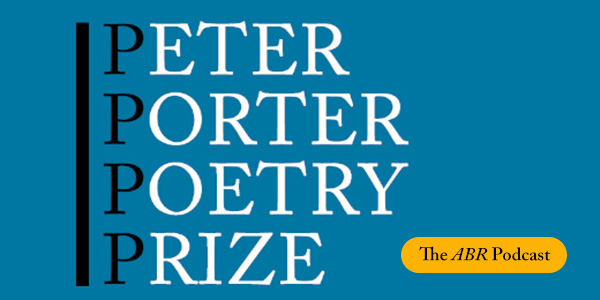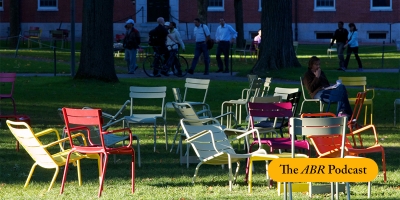Accessibility Tools
- Content scaling 100%
- Font size 100%
- Line height 100%
- Letter spacing 100%
Harvard
The ABR Podcast
Released every Thursday, the ABR podcast features our finest reviews, poetry, fiction, interviews, and commentary.
Subscribe via iTunes, Stitcher, Google, or Spotify, or search for ‘The ABR Podcast’ on your favourite podcast app.
2025 Peter Porter Poetry Prize Shortlist
Read by the poets
This week on The ABR Podcast we feature the 2025 Peter Porter Prize shortlisted poems, as read by the five poets, published in the January-February issue of ABR.
Recent episodes:
The Gough Whitlam and Malcom Fraser Chair of Australian Studies was established at Harvard University in 1976 as a diplomatic gift marking the bicentenary of the American Revolution. It was also part of a global strategic initiative that saw Australian Studies visiting professorships spring up in places from Dublin and Copenhagen to Tokyo and Beijing. While not all such professorships have fared equally well, the Harvard Chair of Australian Studies has been bolstered by the financial largesse of its host institution as well as by its record of strong recruitment. In this episode of The ABR Podcast, Joan Beaumont reflects on the history of this unique institutional arrangement ...
... (read more)In 1976, the Australian government signed an agreement with one of the leading universities in the world, Harvard, to fund a visiting professorial position in Australian Studies. Originally conceived by the government of Gough Whitlam, the gift of US$1 million was a token of Australian goodwill to the United States on the bicentennial celebration of the American Revolution. Its purpose was to promote increased awareness and understanding of Australia by supporting teaching, research, and publication.
... (read more)For the second half of 2007 and the first half of 2008, I was the professor of Australian Studies at Harvard University. This is an annual appointment, open across the range of disciplines that lend themselves to the study of Australia, so that my predecessor, Jim Fox, was a member of the department of anthropology, and my successor, Iain Davidson, is now working in the depart- ment of archaeology. I joined a large and vigorous department of history, which has about fifty members.
Some months before I left, the head of department asked me to prepare a course guide for my first semester of teaching. To help me, he sent a copy of one of his own recent course guides. It was quite adequate: the lecture pro- gramme, reading list and assessment procedures were all set out. But to anyone teaching in an Australian university it looked decidedly scant, the sort of handout that might have passed muster twenty years ago, before university learning and teaching committees began to insist that generic skills and key learning outcomes be specified for all subjects.
... (read more)

